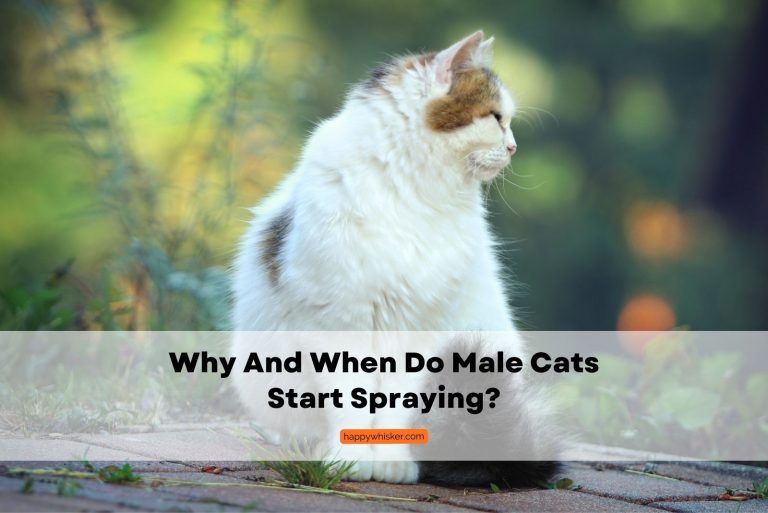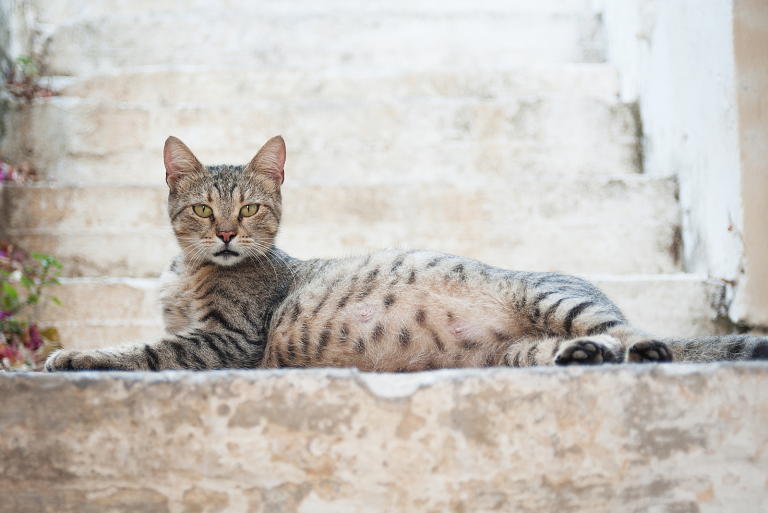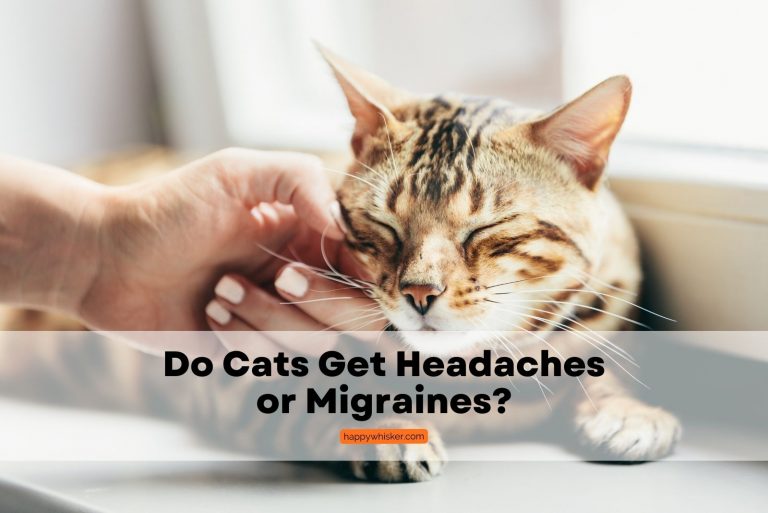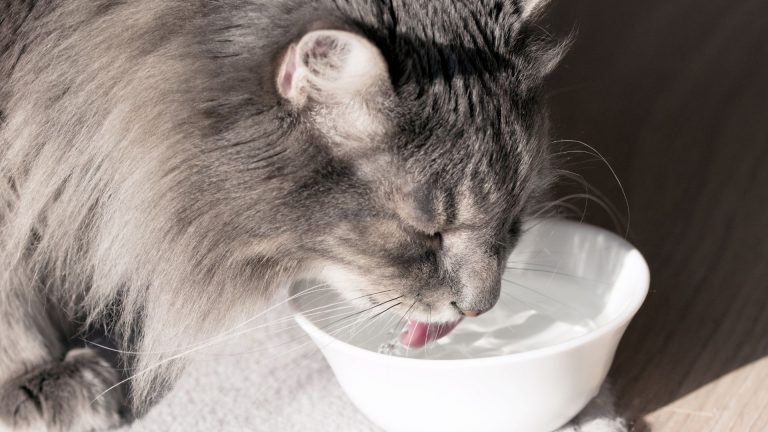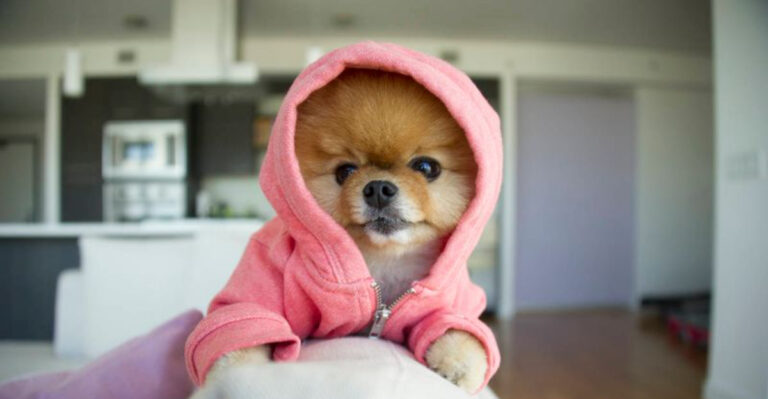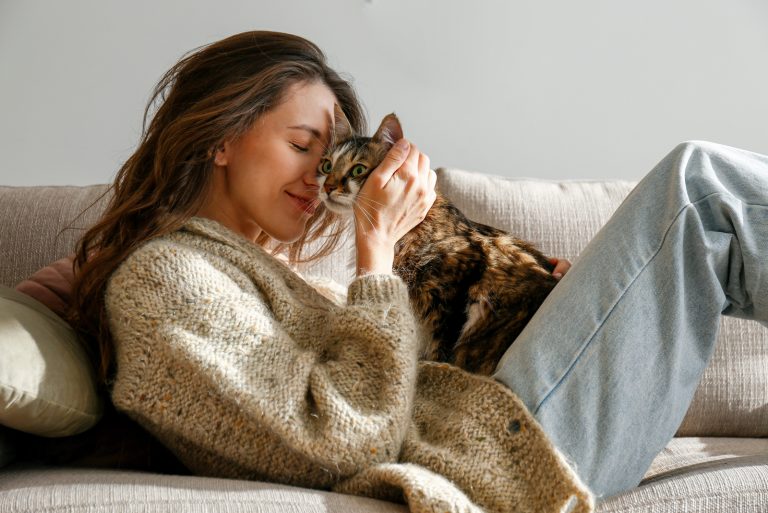10 Must-Try Home Remedies For A Bloated Cat Or Kitten
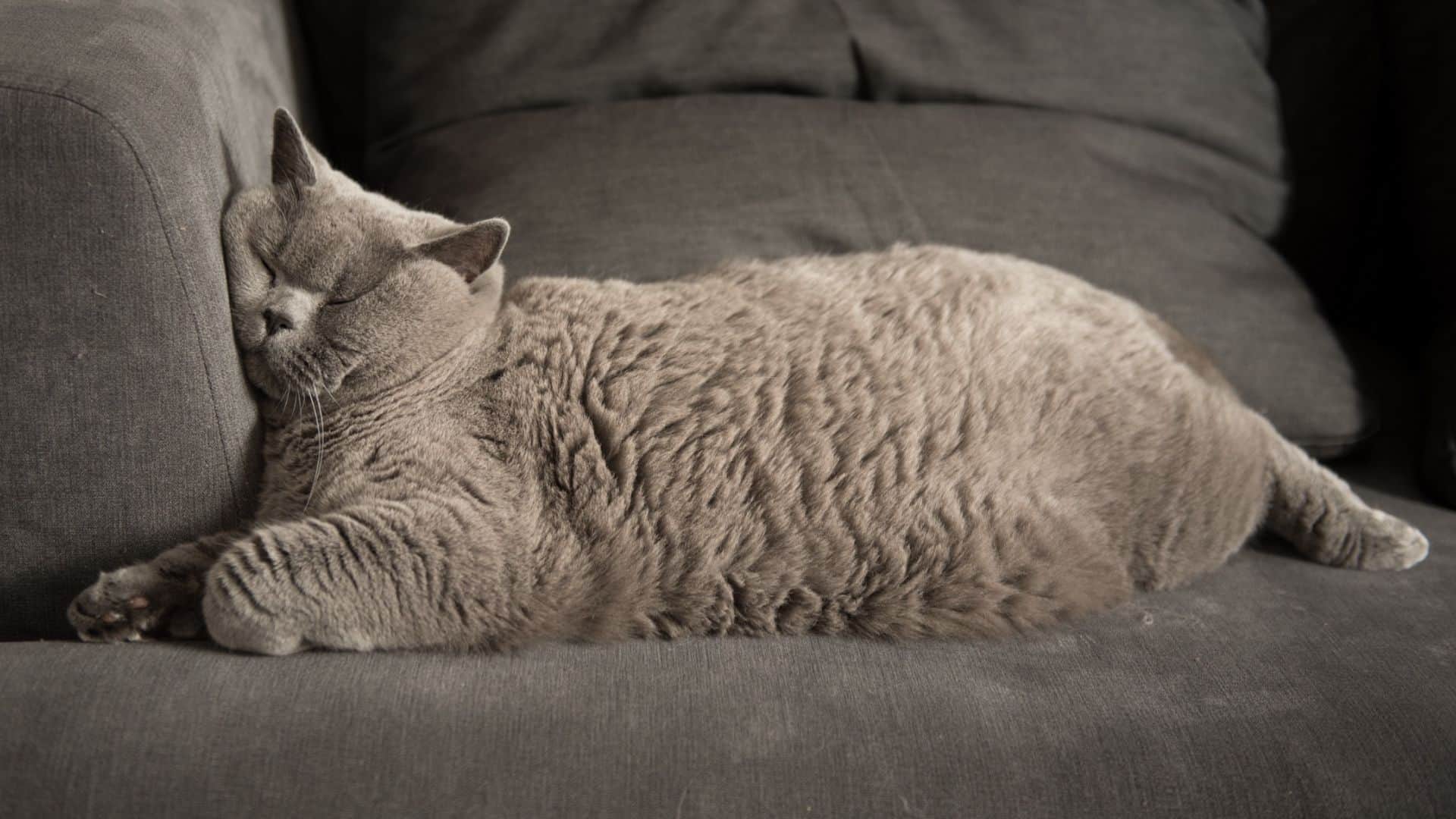
This post contains affiliate links, and I will be compensated if you make a purchase after clicking on my links, at no extra cost to you.
If you have a kitten or a cat, they’re likely to experience bloating at some point. It’s usually nothing to be worried about, and bloating can be resolved by itself or with a little help from you.
If you want to help your kitty with its bloating issues, you’ve come to the right place! In this article, I will discuss the ten best home remedies for bloated cats, so let’s get right to it!
10 Home Remedies You Must Try
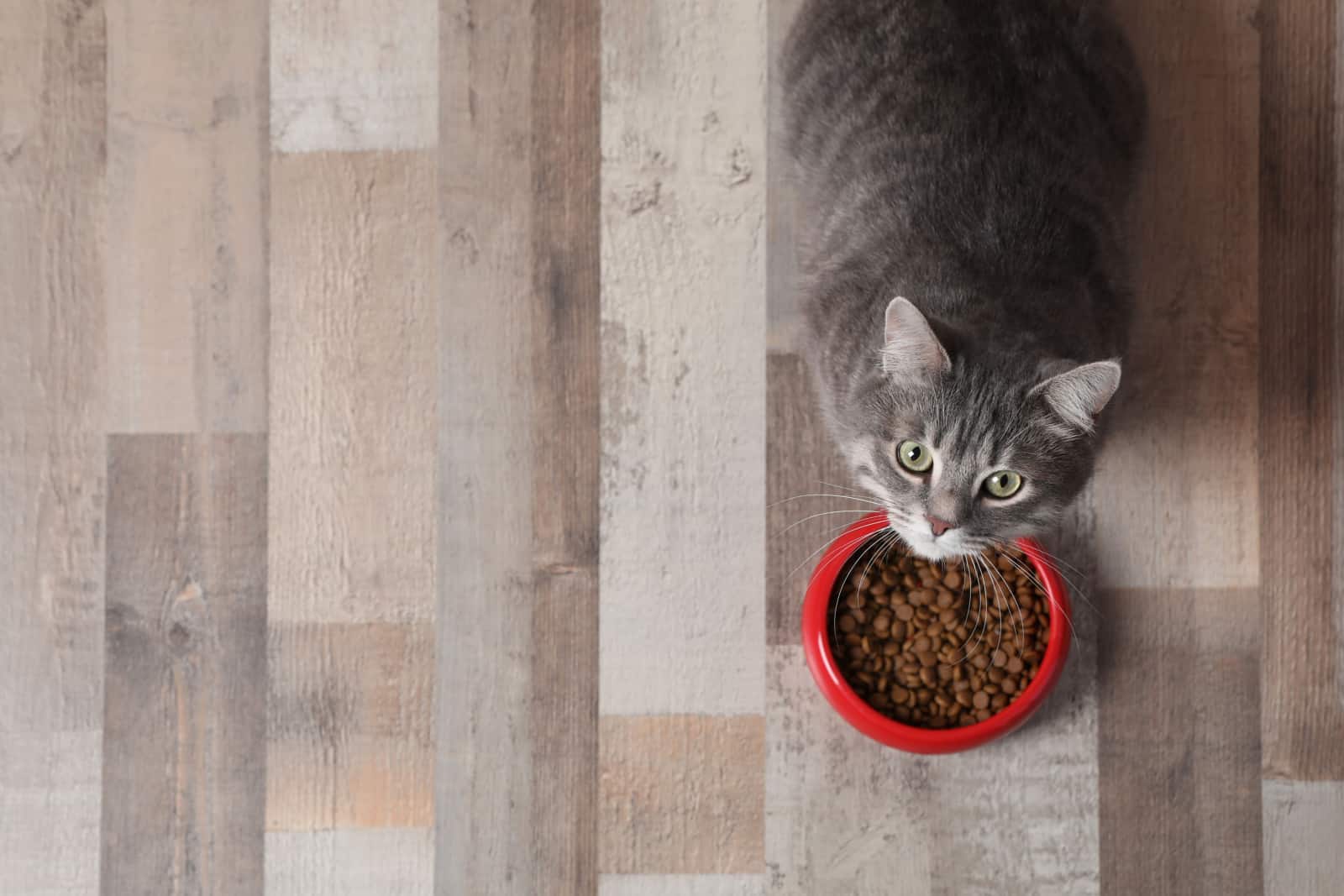
There is one quick thing I must mention: no perfect at-home remedy will make your cat’s bloating disappear in a matter of minutes. However, you can reduce bloating and, most importantly, prevent it from happening in the future.
1. Give Your Kitty Smaller Meals
If your cat or a kitten is bloated due to overeating, it’s best to feed them smaller meals more frequently throughout the day. For example, it’s better to have four smaller meals than two big meals that will cause a bloated tummy.
If you notice that your cat is eating its own food and then another cat’s food or it keeps asking you for more food, you should check in with your vet to see if your cat’s health is okay, as overeating can be a symptom of an underlying health issue,
Overeating is a major cause of weight gain, so ensure your cat’s diet is healthy, your cat is not overeating, and your kitty has enough physical exercise.
2. Introduce A Slow Feed Food Bowl
A common cause of bloating in cats is eating too quickly, in such a way that the cat swallows air alongside its food. Food and air cause a bloated tummy, which can cause discomfort for the cat.
So, how do you prevent your feline from eating too fast? Let me introduce you to slow-feed food bowls!
Slow-feed food bowls make cats “work” for the food, resulting in slower eating. Slower eating reduces bloating and makes your cat feel good after a meal.
Another benefit of these bowls is that they provide mental stimulation for the cat; as you know, both physical and mental stimulation is essential for cats!
3. Switch Up Your Cat’s Diet
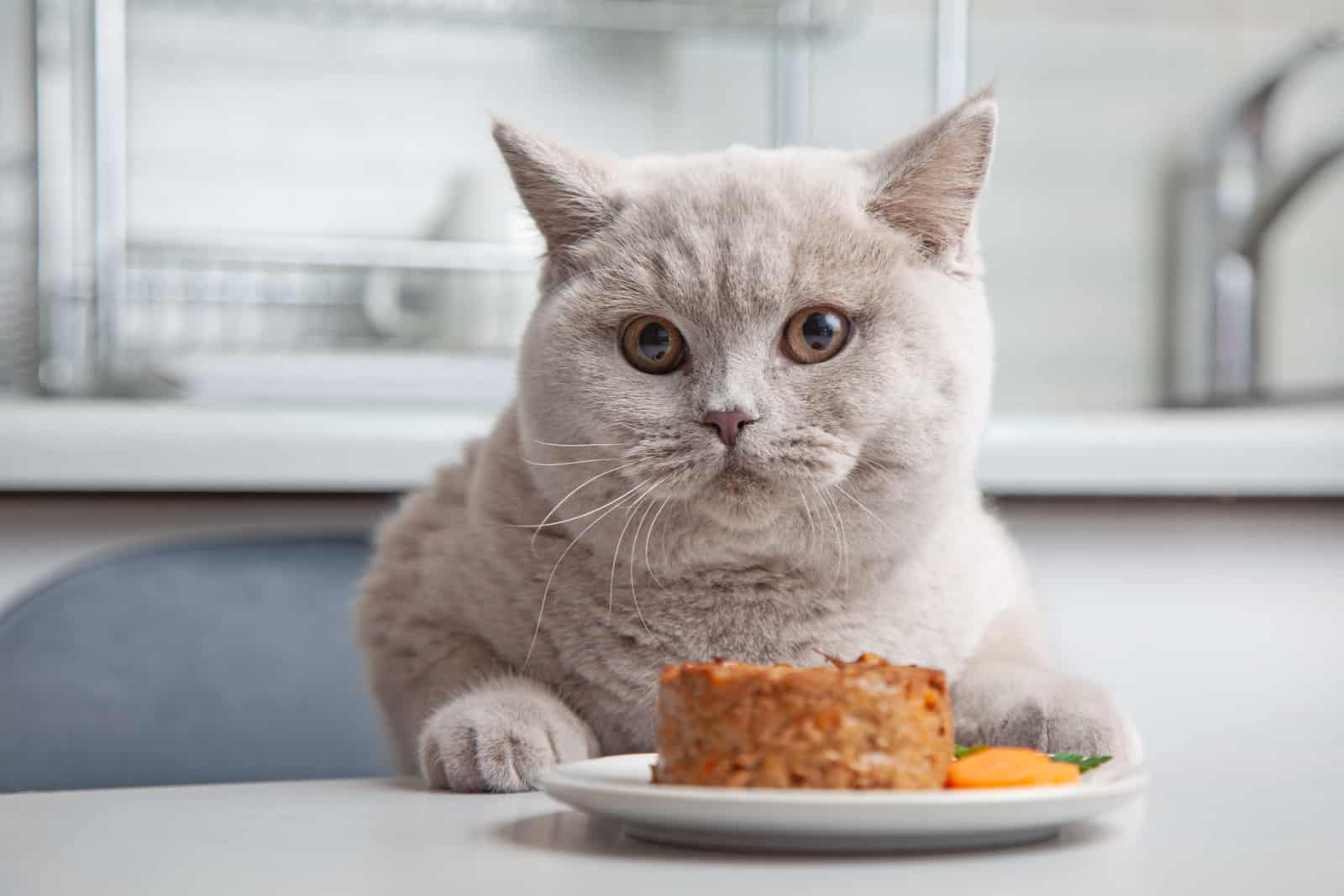
Your cat’s bloating can be caused by the type of food your cat is eating. For some cats, dry cat food causes bloating, while for others, it’s wet cat food.
To lessen bloating, pick a high-protein, low-carb cat diet, and try using more canned food than kibbles.
In addition to how often and how much your cat eats, the cat’s nutrition might also be the source of bloating. The harder-to-digest components in certain cat meals include soybeans, beans, peas, and corn.
Therefore, examine the labels before buying your kitty’s new food, and ensure there are no hard-to-digest ingredients!
By giving your cat a high-quality, balanced meal, you can ensure that your feline is getting the vital nutrients they need and not just empty calories that can make them obese.
4. Make Sure Your Cat Is Not Eating Leftovers Or Food From The Trash
Don’t give food leftovers to your kitty. Your cat might be asking for your food, but resist the urge to give your food to your cat.
Constipation can result from eating table scraps. Depending on your cat’s digestive system and how sensitive it is, this food may cause moderate gastrointestinal problems, bloating, vomiting, and diarrhea.
If your cat is explorative and likes eating food leftovers from the trash, please ensure the garbage is outside your cat‘s reach.
Cats may scavenge food from other places, such as garbage cans, if they can wander free outside. Gas and bloating are potential side effects of eating food your cat finds out on the street. Therefore, try to find a way to restrict your cat’s movements outside your yard.
5. Probiotics Are Your Cat’s Friend
If your kitty is experiencing bloating and other digestive issues often, talk to your veterinarian about adding probiotics to your cat’s diet.
Probiotics are good bacteria that improve digestion and general health in cats. These live microbes can help treat or prevent various health conditions, especially those that impact the gastrointestinal tract.
Pets are given probiotics as supplements, which can come as powder, pills, chews, and liquids. Before giving them to your pet, please consult your veterinarian, as giving your cat too many probiotics can have the opposite effect of what you’re trying to achieve.
6. Remove Food Allergens From Your Cat’s Diet
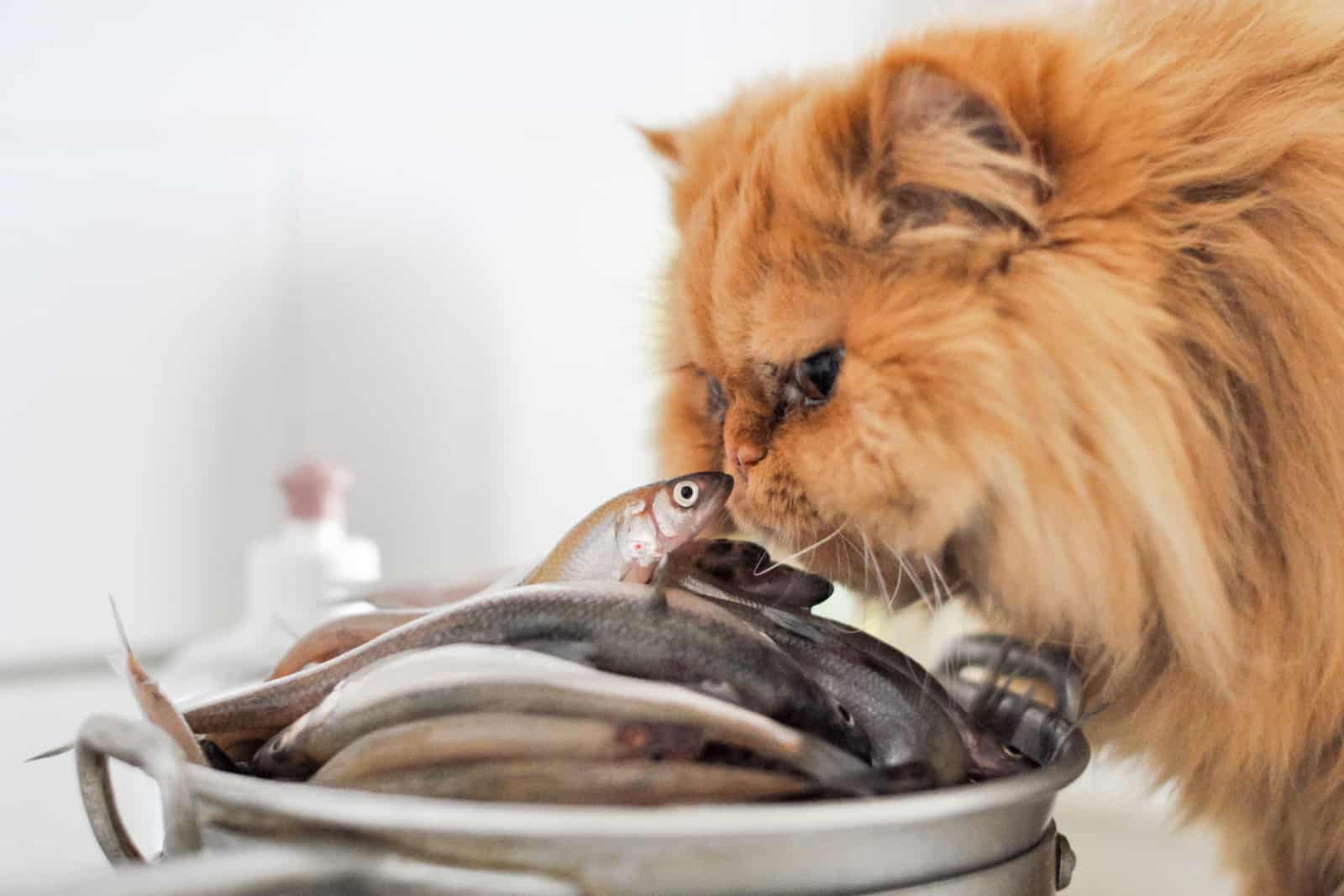
Dietary allergies in cats can result in bloating.
For instance, a cat with a grain allergy can feel excessively bloated after eating food containing grains. You should look at some grain-free cat food options if you have any suspicions about this.
Beef, fish, poultry, and dairy products are frequently linked to cat food allergies.
Cat food allergies have no cure, but are controlled by avoiding foods that make them worse.
Once you have established a diet that is effective for your cat, you must stick with it long term, eliminating cat treats and other foods that contain the allergen.
7. Milk Is Not Your Cat’s Friend
Many cat owners offer their pets cow’s milk and other dairy products as treats since they know how much their feline friends like the flavor. However, this is not something you should do.
Since an adult cat cannot produce the lactase enzyme required to digest lactose, cow’s milk is a frequent cause of feline bloating.
Besides bloating, many cats experience gassiness and diarrhea after drinking milk. This is more common in adult cats than in kittens, but you should not give milk to either.
Therefore, it’s best to avoid giving dairy products to your felines, as dairy products are not part of a regular cat’s diet.
8. Ensure Your Cat Has A Little Bit Of Physical Activity
As a cat owner, you want to engage your feline friend in a lot of play and activity to keep it stimulated and help avoid bloating and other health problems (especially obesity).
All cats must be active, but bloating-prone kittens may benefit the most from exercise. A little physical activity helps speed up the digestion process.
Encourage your cat to play outside if you have a safe space for them to do so after meals and before they return inside.
9. Deworming Medicine
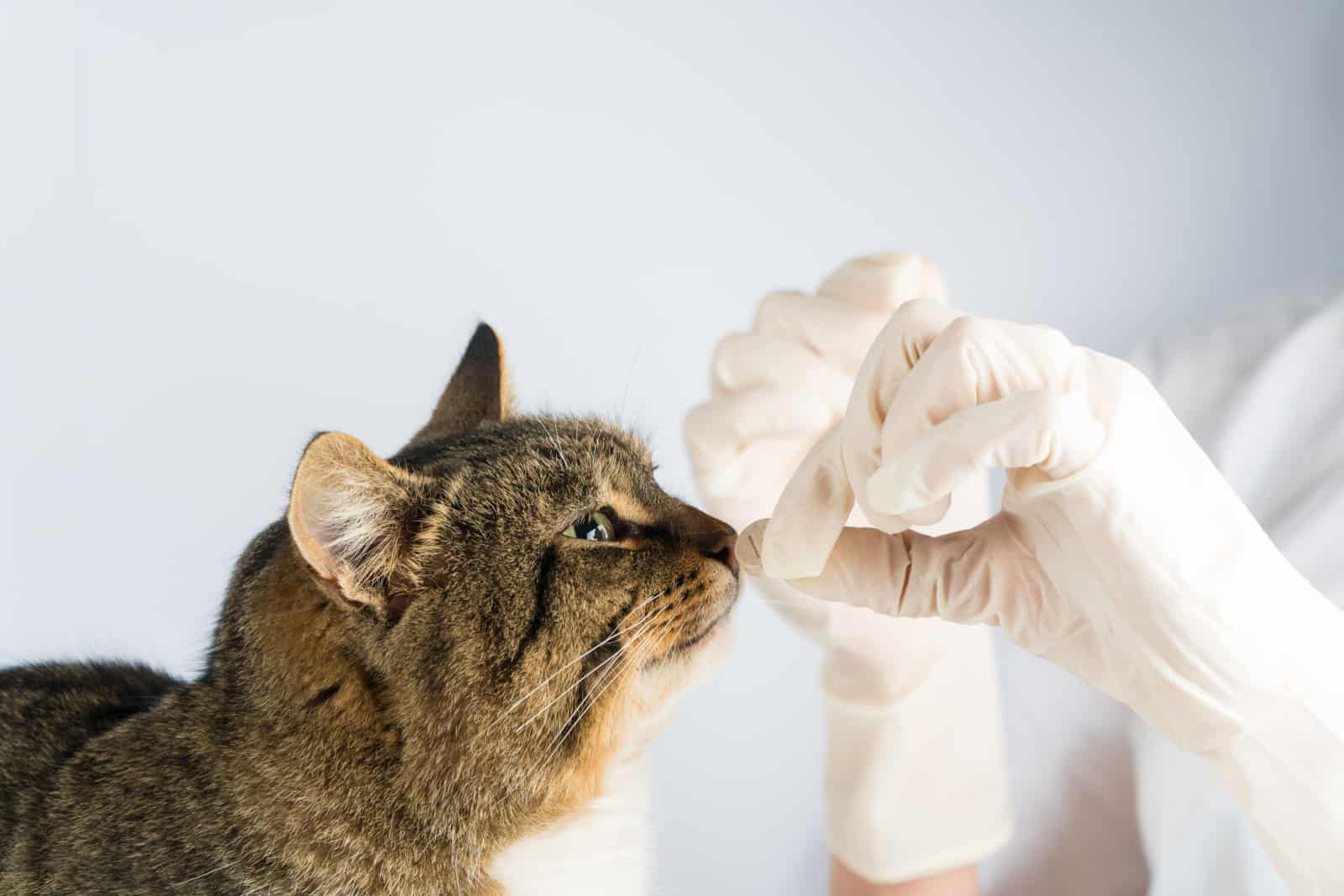
Both indoor and outdoor cats commonly experience worm infestations.
When a feline consumes a flea carrying tapeworm eggs, an infestation develops. The eggs hatch once they are within the intestines, releasing the worms into the stomach and resulting in edema.
Other indications that your cat may have intestinal parasites include a pot-bellied appearance, vomiting, diarrhea, loss of weight, and a poor coat.
In general, it is advised to deworm kittens from as early as 2 to 3 weeks old, with follow-up treatments until they are 12 weeks old.
A year-round monthly heartworm and flea preventative that both treats and controls hookworms and roundworms should be given to all cats and kittens that are old enough.
Related: At-Home Deworming For Cats: What You Should And Shouldn’t Use
10. Try Products That Will Help Your Feline’s Bloated Tummy
If your kitty frequently suffers from improper digestion and bloats, consider looking into some products that improve digestion and reduce gastrointestinal discomfort. My top picks are listed below!
Nutramax Proviable Health Supplement
This product contains seven strains of “good bacteria”, and it supports the gastrointestinal health of both cats and dogs. It has a lot of great reviews, which is always reassuring that the product is a good one.
Apart from probiotics, this product also contains prebiotics, which are used as a food source by probiotic strains. This supports the probiotics’ fight to ensure a healthy gut and digestion.
How do you use it? Simply sprinkle the contents of the capsule over your kitty’s food!
PetHonesty Natural Digestive Support
PetHonesty’s Digestive Probiotics are another great product that will help your cat’s digestion and, hopefully, reduce the effects of bloating.
The powder is a great chicken-and-fish flavor, so you don’t have to worry about your cat protesting against eating it!
With 5 Billion CFUs of probiotics and 12 different probiotic strains that are especially suitable for cat digestive health, it will aid in promoting healthy gut flora.
Pet Naturals Daily Probiotic For Cats
Probiotics assist in restoring normal digestive processes to lessen gassiness, diarrhea, constipation, and obstructions.
The Pet Naturals Daily Probiotic for Cats is the ideal blend of prebiotics and probiotics to support gastrointestinal health, reduce excessive gas and bloating, and enhance the cat’s immune system.
This product has no wheat, corn, or artificial components, and even picky cats will enjoy this tasty duck-flavored chew!
Pet Ultimates Probiotics for Cats
If your cat has digestive problems or needs a little more support after taking a recent round of antibiotics, you can rely on PetUltimates digestive enzyme supplements.
Twenty probiotic species within this product have been carefully chosen and are known to treat vomiting, diarrhea, and digestive support in cats.
Watch your cat’s gastrointestinal health improve by adding one little scoop of this supplement to their liquid or soft food daily.
What’s Causing My Cat’s Bloated Tummy?
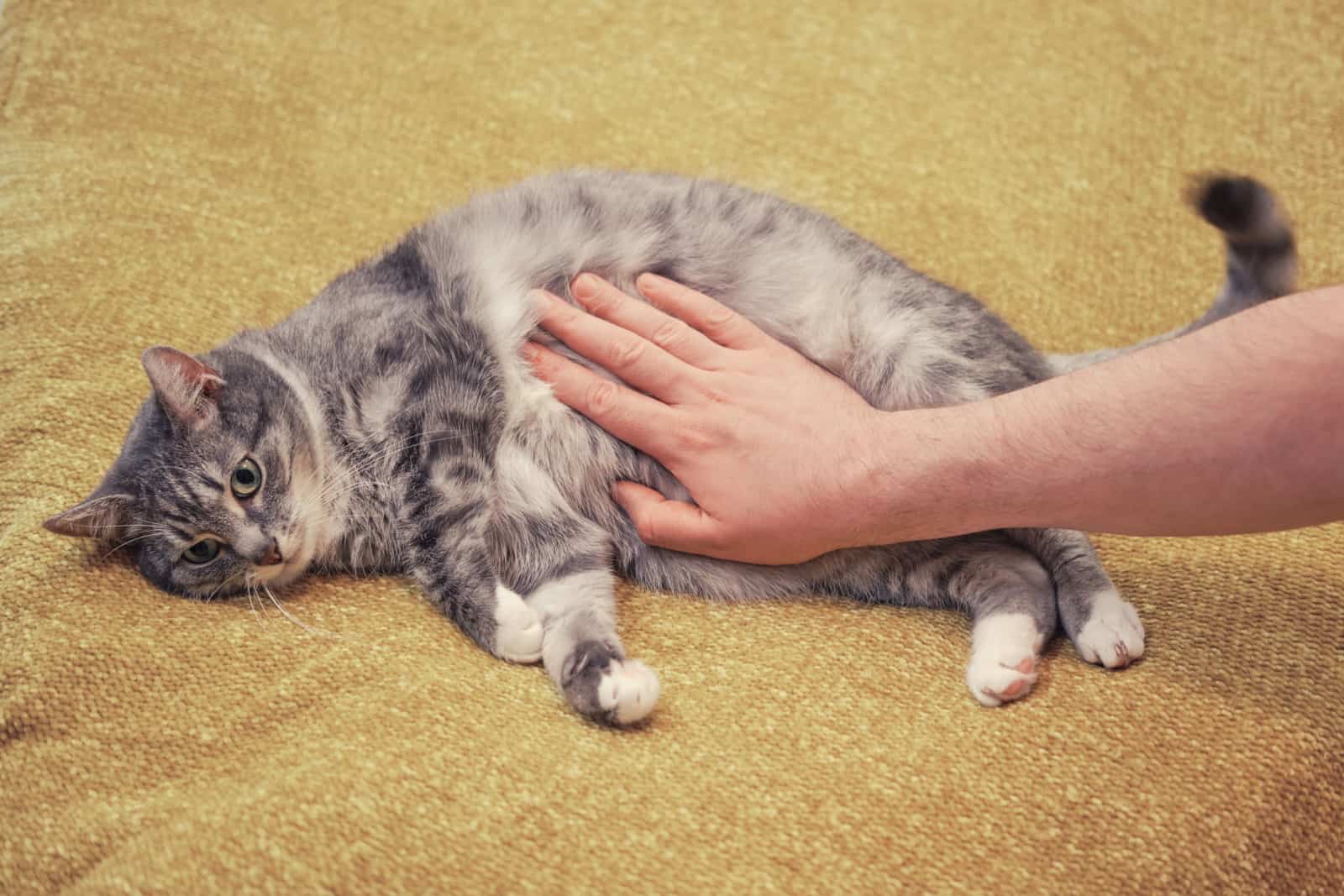
There are numerous causes for a cat’s bloated tummy, some of which are:
• Eating too fast
Cats who devour a lot of food rapidly could swallow a lot of air. For some cats, this results in bloating.
• Overeating
Overeating can be a symptom of boredom, anxiety, or depression. An obvious symptom of overeating is an enlarged stomach. Cats can overeat because their owners are overfeeding them.
• Intestinal parasites
A dull coat, coughing, vomiting, diarrhea, loss of appetite, or a pot-bellied look are some of the more common symptoms of intestinal parasites. Luckily, they can be treated effectively!
• Eating the wrong kind of food
Foods with a high fiber content or an excess of red meat can cause flatulence in cats. Eating expired food or food from the trash can also cause flatulence. Dairy products can give many cats gas as they can’t digest them.
• Diet rich in carbohydrates
Although cats can digest carbohydrates, they should only make up a small part of a cat’s diet. Diet high in carbohydrates can cause gastrointestinal upset, as well as weight gain and diabetes.
• Food allergies
Food allergies can appear in cats at any stage of their lives, and cats may even develop allergies to foods they have consumed for a long time.
• Indigestion
Indigestion in cats can be brought on by eating inappropriate food. Irritability and loss of appetite are two more indigestion symptoms.
• Constipation
Cats with constipation may have a swollen belly and may vocalize when they try to urinate, vomit or stop eating altogether.
• Organ enlargement
In kittens, a variety of organs can enlarge and cause bloating. Organ enlargement can affect the bladder, gastrointestinal system, liver, spleen, or kidneys.
• Fluid build-up
Any fluid in the abdomen might contribute to a cat’s bloated tummy. Several illnesses can bring on abdominal fluid, including bleeding, cancer, heart failure, low protein diet, inflammation, and viral infections.
• Feline infectious peritonitis (FIP)
Both domestic and wild cats can contract the viral illness known as feline infectious peritonitis (FIP), which is brought on by a feline coronavirus.
How Long Can Cats Be Bloated For?
The answer to this question depends on the underlying cause of your cat’s bloated stomach. If the cause is overeating, the cat’s bloated tummy should disappear as soon as the food gets digested properly.
If the cause is something more serious, such as organ enlargement, the bloat will not disappear in hours. If your cat’s bloat is not subsiding after more than a day, I suggest you see a vet to ensure your kitty’s not suffering from a serious condition threatening its wellbeing.
When To Visit The Vet
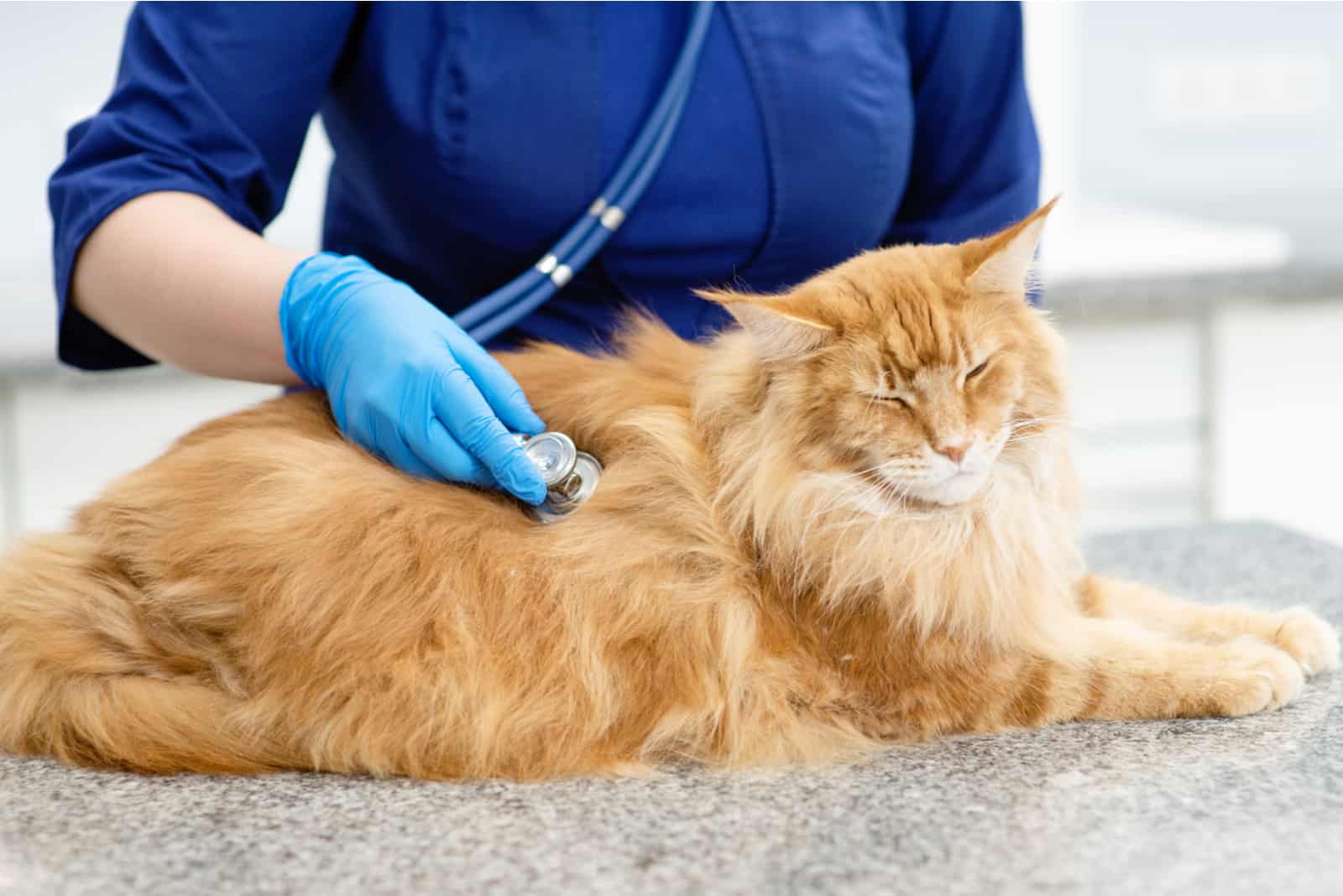
You won’t need to go to a vet every time your cat experiences bloating, but sometimes it might be necessary. Therefore, it’s important to distinguish when your cat’s bloating is nothing to be worried about and when it’s time to see a vet.
Usually, bloating subsides in a matter of a few hours or a day. It’s very unusual for bloating to last more than a day, and chronic bloating is even rarer.
So, when should you visit the vet?
• If your kitty is dealing with chronic bloating, and is experiencing symptoms such as vomiting, lack of appetite, or lethargy, you need to see a vet.
• If your cat’s bloating appears all of a sudden, and your cat appears to be in great discomfort or even pain.
• If your cat starts experiencing other symptoms of ill health, such as vomiting, drooling, weakness, pale gums, fever or low body temperature, difficulty breathing, etc.
I must mention two feline health issues whose common symptom is a bloated stomach: toxic milk syndrome and feline infectious peritonitis.
Toxic Milk Syndrome
Kittens 1–2 weeks old are typically affected by toxic milk syndrome. The kittens cry nonstop and seem to be in agony. Bloating and diarrhea are commonly observed as well.
The most common cause of toxic milk syndrome is mastitis (bacterial infection of the mammary gland(s)), which causes the mother’s milk to become toxic.
Metritis is an infection of the uterus lining, a life-threatening condition for the mother cat, and can cause the milk to be toxic.
Another potential cause of toxic milk syndrome is contaminated milk formula.
Feline Infectious Peritonitis (FIP)
Feline infectious peritonitis (FIP) is a viral infection that mostly affects cats in multi-cat households or cat shelters.
Symptoms of FIP include lethargy, loss of appetite, weight loss, and fever. Fluid building up in bodily cavities is referred to as the “wet” or “effusive” type of FIP. This can happen in the belly, causing a bloated abdomen.
According to VCA Animal Hospitals, FIP is a disease that can affect cats of all ages, but it’s most common in cats under two years old.
Little is understood about this disease, and unfortunately, the outcome for cats with FIP is not the best.
In Conclusion
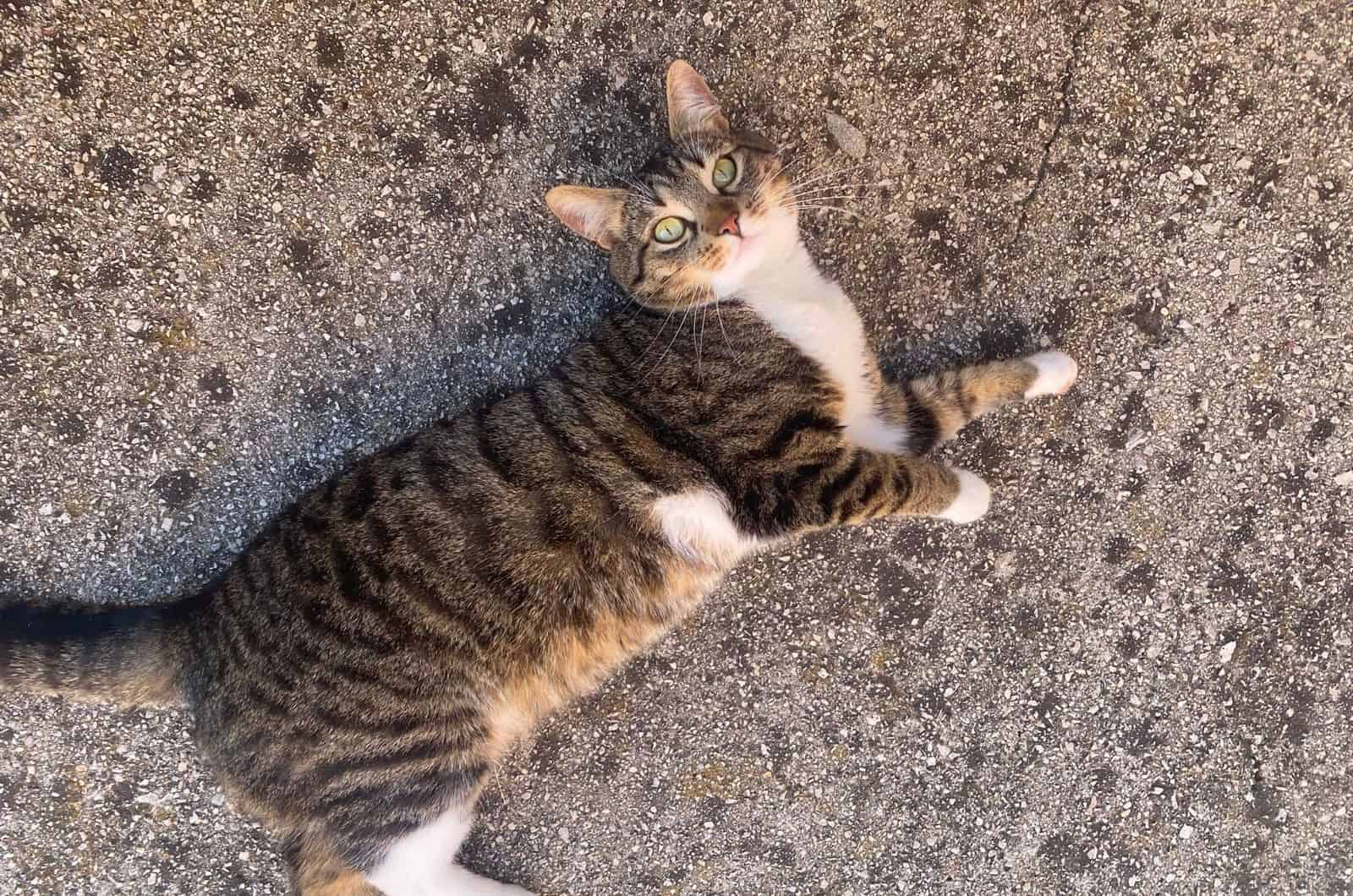
Now you know all about what could potentially be causing your cat’s bloated tummy. As you saw, some causes are no cause for great concern, while others might require a trip to the vet.
If you determine your cat’s bloat is not that big of an issue and the cause can be handled at home, then you should try some of the ten home remedies for bloated cats I’ve described in this article.
I wish you the best of luck, and I hope your cat’s bloating is resolved very soon!
Related Articles:
List Of Best Pumpkin Cat Treats In 2023 (+ Homemade Recipes)

